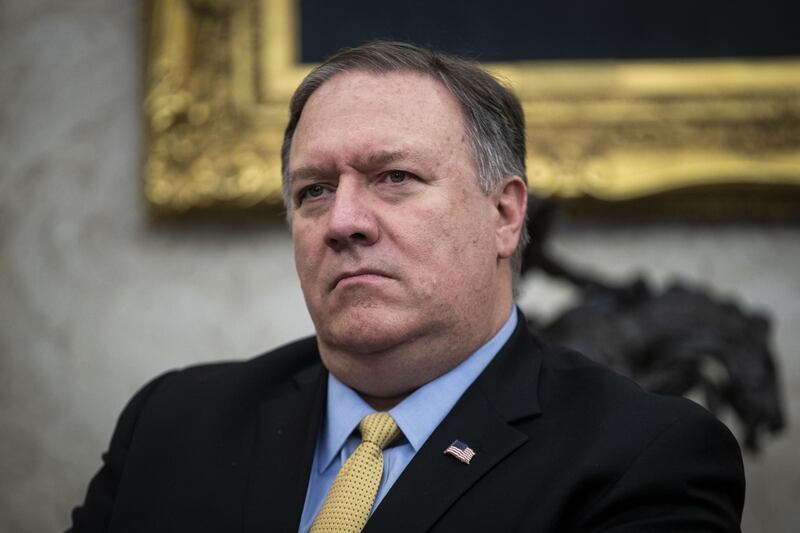Representatives of 78 of the 79 nations that constitute the Global Coalition will be paying close attention to the remarks of US Secretary of State Mike Pompeo, who is due to address the organisation's meeting in Washington tomorrow. The coalition was formed in 2014 to erode and defeat ISIS. In December, its unity was compromised, and membership dismayed, by President Trump's announcement that the US had "defeated ISIS in Syria" and was pulling out of the country.
Without doubt, the coalition has made tremendous progress against ISIS. In 2014, the group was in control of vast areas of Iraq and Syria, from Mosul in the east almost to Aleppo in the west. By January last year, its influence had been reduced to a few isolated pockets in Syria. In addition to the military might that has brought to bear against ISIS, coalition partners, including the UAE, have done much to disrupt the organisation's funding and recruitment and to restore essential services in liberated areas.
But now is not the time to pull back. The UN, the Pentagon and the Centre for Strategic and International Studies have all warned that ISIS remains a real threat, with up to 30,000 fighters still active in Syria. On Monday a report by the Pentagon went further. Unless pressure was maintained, ISIS remained “a potent force of battle-hardened and well-disciplined fighters that could likely resurge in Syria”. In Iraq, it states, “ISIS remains active in rural parts”.
President Trump and his advisers remain apparently impervious to these realities. Last month, just a week after four Americans and 10 others were killed by an ISIS bomb in the Syrian city of Manbij, Pompeo echoed his leader's claim, insisting that the coalition had defeated ISIS in both Syria and Iraq. This is a dangerous fallacy. ISIS may have been severely degraded, but it is far from defeated. Deprived of the territory it claimed for its so-called caliphate, it has simply reverted to the tactics of insurgency. The world is indebted to the Global Coalition for the progress it has made. But this week in Washington all 79 of its member states must renew their commitment to destroy ISIS, in all of its forms.





